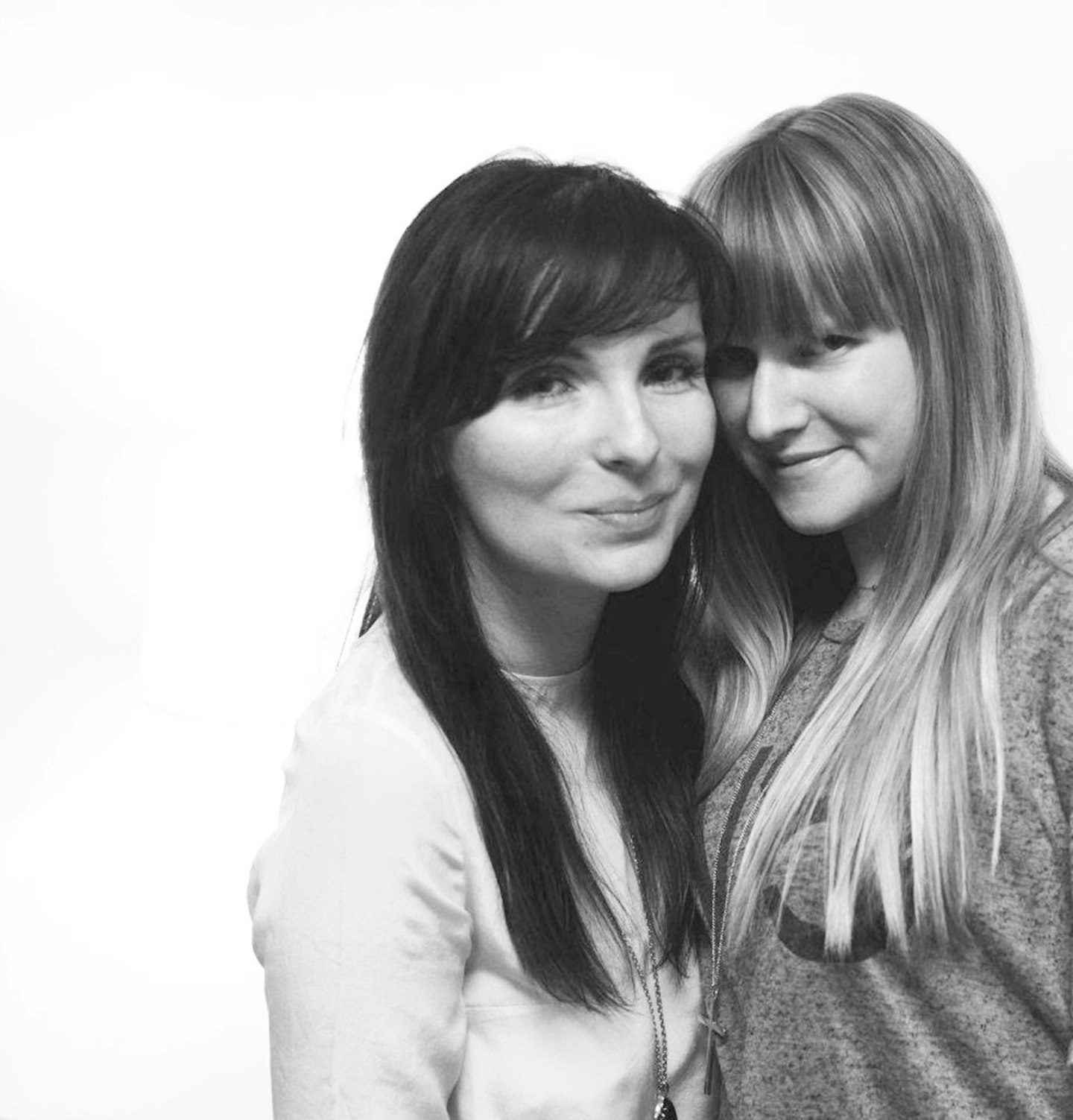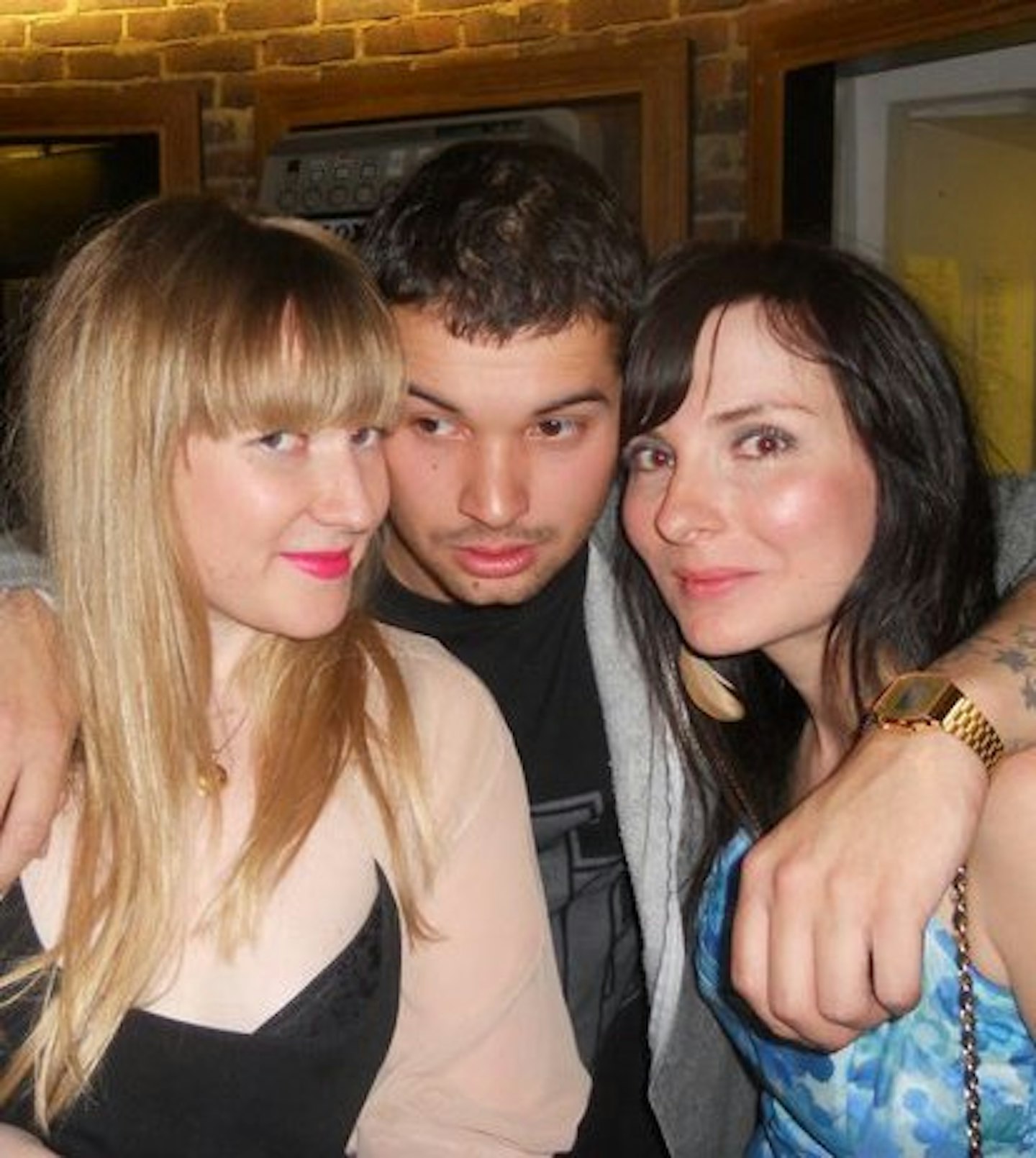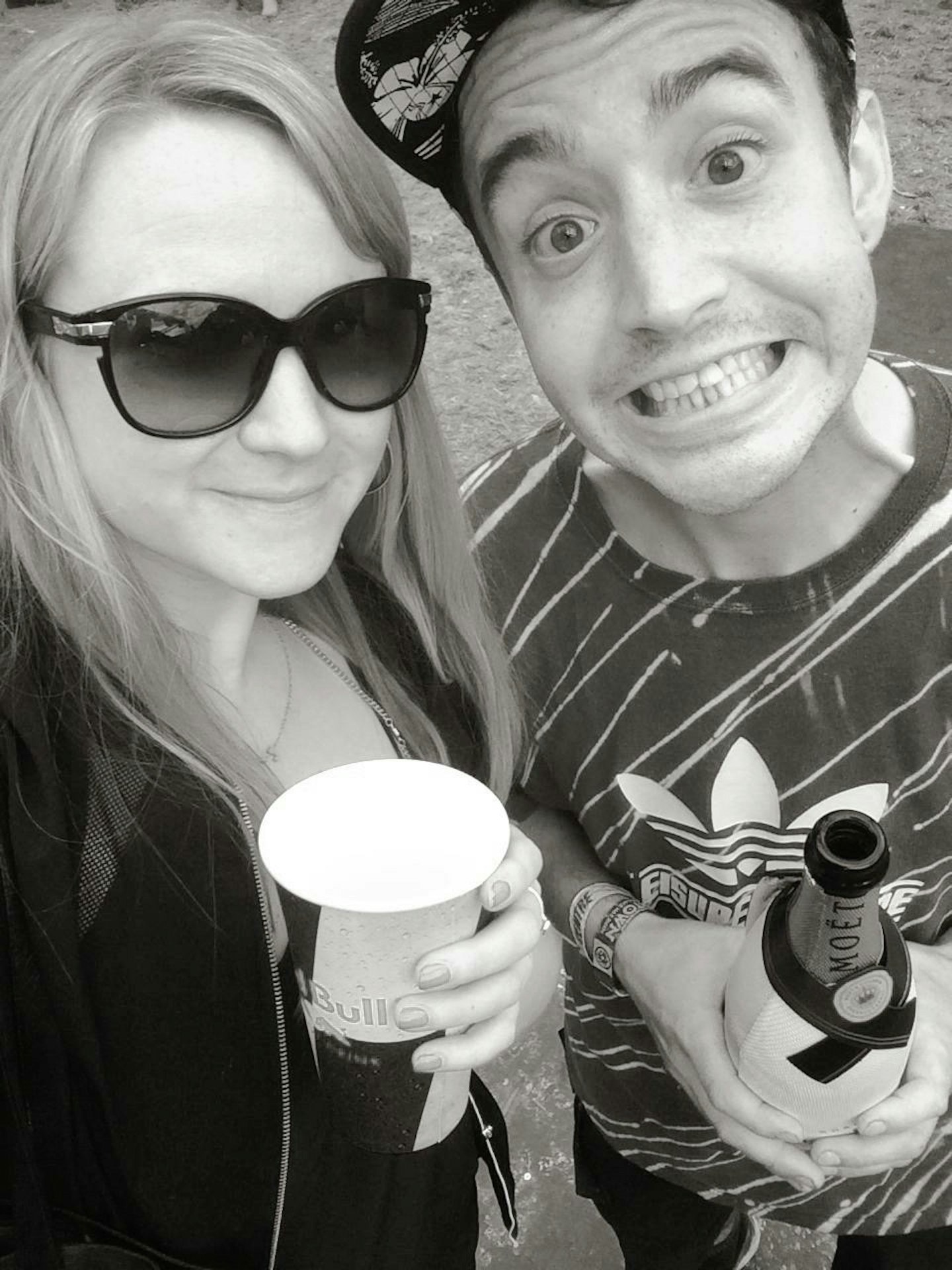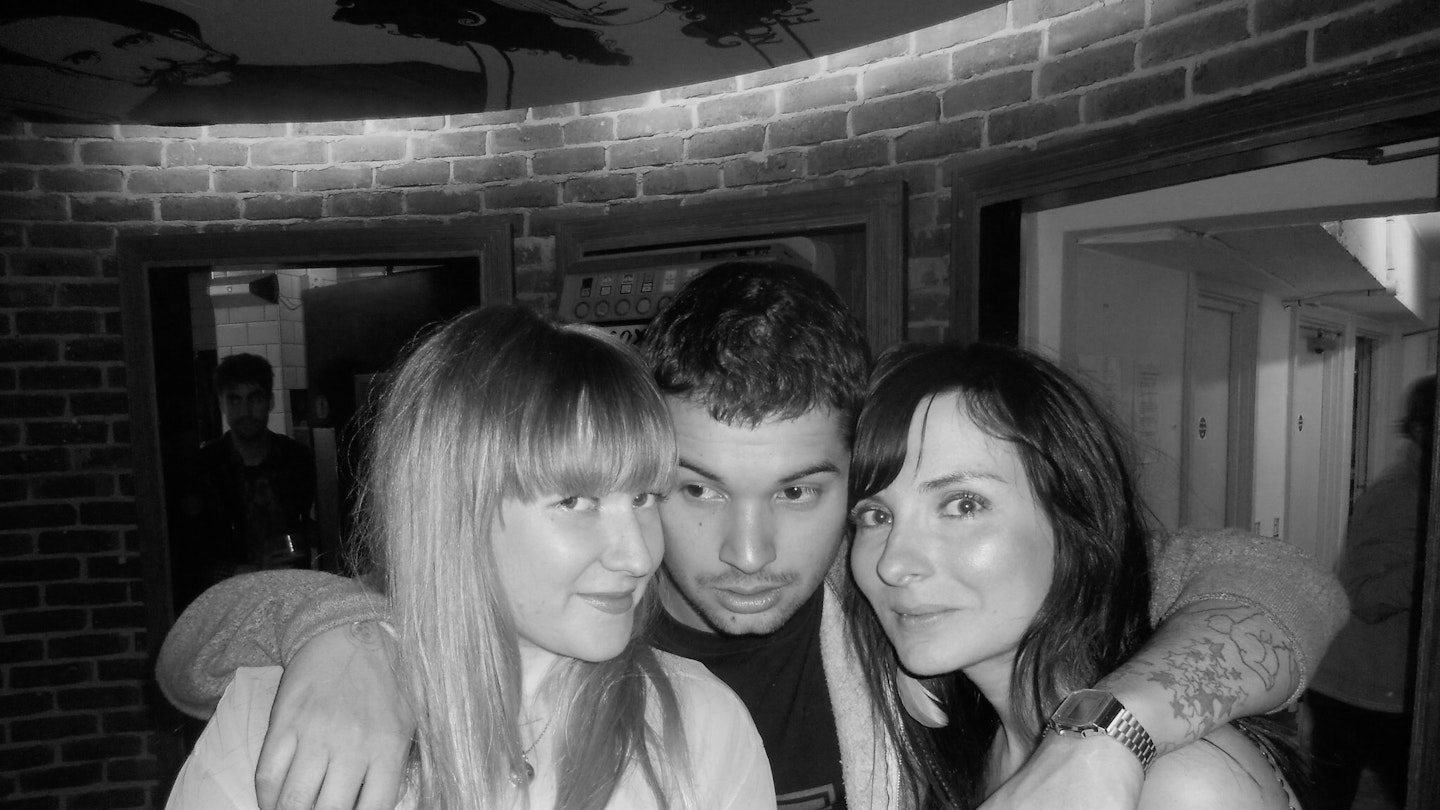How many times have you put off getting up for work by scrolling through old photos that have popped up in your Facebook Memories for that day? It’s probably a happy thing: maybe you’ll tag a friend you’ve not seen for a while to remind them of ‘that night’ in 2011 and how you must do it again soon.
For me, though, social media has become a minefield. Three of my best friends have died in the past two years; three of the people I loved most in the world. The first was Amy, who died in March 2015 at the age of 37 after a six-month battle against cancer. She had been like a sister to me when we both lived in Los Angeles working as journalists. We had all truly believed she would get better, until it became clear that she was too ill to survive.
The next phone call came all too quickly, just three months later. Ish, my ex-boyfriend and – against all the odds after our break-up – best friend on the planet, had died suddenly in his sleep at the age of 26. Then this February, another extremely close friend, Toby, 31, who Ish had grown up with, died while on holiday in Thailand.
Alongside the raw and devastating sadness I felt during each of those traumatic times, Facebook and Instagram became both lifelines and triggers for more tears. I would find myself obsessively visiting my friends’ pages in the days after they died, struggling to understand how they were suddenly no more when they had been posting stupid links or getting tagged in photos just days before. Each of those friends was still so very present on social media but they were no longer in my real life.

If I’m honest, at first I did find the influx of photographs that were posted on social media and the messages members of our friendship group were sending to one another a real comfort. I felt connected to people who knew what I was going through. Social media can be a very warm place (among all of the narcissism) and people find lovely ways to reach out.
When it came to coping in the weeks after losing Ish, who I had been so close to for a
decade and in a relationship with for three years of that time, contact from each and every person who messaged me gave me strength. I lost count of the messages of love and support I received. People I hadn’t seen for years, people didn’t even know that well, all got in contact and it helped so much to hear about how he had touched their lives. They were full of devastation for me and Ish’s friends and family. They knew – many of them thanks to social media – just how much we loved each other.
Now, though, depending on how strong I’m feeling on a certain day, Facebook Memories becomes a trigger for sad thoughts that can turn me upside down. Pictures of Ish, Amy and I together crop up a lot. Private jokes. Days at Universal Studios. Birthday parties. Holidays. Festivals. Ish, Toby and me all on a night out. I never know what each day is going to throw at me. I’ve begun to try and see it as a happy thing most of the time: I get to revisit good times, I think of my friends, before I get on with my day again.
As much as we wouldn’t like to admit it, social media now forms the basis of a lot of our connections with friends: we don’t get to see each other every day, and we definitely don’t pick up the phone and call very often. People are more present in your life, whether you like it (or them) or not, and you see what they’re up to far more than used to be normal.
I'd do anything to have my friends back, but I wouldn't go back to 'old' me If I had the choice.
This makes the mourning process very different for everyone. Some people find communal mourning very comforting, but then there’s also a feeling of pressure to add to that and a feeling that you’re not sufficiently sad if you don’t. There’s no right way to deal with it. Total silence online doesn’t mean you don’t care. The grieving experience is far more to do with the real people in your life than the online version of things.
I hope I have been a solace and support to my friends’ families and loved ones in the last two years. In turn, they and the people who were physically around me guided me through an experience which has changed me forever.
I remember very clearly that the day I found out Ish had died was the very first morning
I had woken up with a happier outlook after Amy’s death following months of crippling sadness. I’d started exercising regularly, as well as drinking less, and had the feeling I might be able to get through the swamp of grief I had been drowning in. But that phone call changed everything. It was the cruellest blow that I could have had thrown at me. My beloved Ish, the person who made me smile more than anyone else in the whole world, was gone. It was the darkest few weeks of my life.

My friends – many of them as close to Ish as I was – dropped everything to be with me.
I couldn’t stop crying, then I would sleep for hours. I was in such a state that I don’t remember the ins and outs of how it happened but, suddenly, I no longer lived on my own. There was always someone there when I woke up. They worked in shifts so I would never be alone.
Even now, thinking of the selflessness of my friends stopping their lives to put me first is so moving to me. My friend Charlie got the phone call that Ish had died and left a family wedding five hours away to get to me. One friend took the day off work so she could be at my door with a big bunch of flowers as soon as I woke up. Another got straight on a bus from Bristol so he could hold me while I cried. I was also desperate for Amy, who I know would have been there as soon as she could get on a plane from Los Angeles, if she were still alive. That’s the kind of woman she was: so loyal and loving.
People had told me before that grief makes your other emotions incredibly sharp and exaggerated and this was true of the few weeks that followed each of my friends’ deaths. While I woke each morning crying and went to sleep in tears most nights, I also laughed harder than ever on those days. It might sound strange, but sometimes I look back on those times with a nostalgic fondness. We were all trying to laugh and remember the best things we could, sitting together drinking (it might be ill-advised but, for us, booze definitely helped). When life goes back to normal, you have to do that on your own for the most part.
I know that I could never have got through those weeks without my friends and family. And I have never, ever forgotten the power of what they did for me.

Over the last two years, while trying to get back to normal, I discovered EMDR (Eye Movement Desensitisation Reprocessing). It’s a breakthrough therapy for those suffering from stress, anxiety or PTSD. Your eyes follow a light, which moves from side to side, or hand taps – it’s not hypnosis because you remain fully conscious – in order to try to reprogramme your coping mechanisms.
My sessions eased my anxiety and replaying of particular moments – mainly the phone calls I’d received telling me about the deaths and disturbing memories of funerals. I could finally get on the Tube without panicking (there was something about being surrounded by people but being simultaneously on my own with my own thoughts).
Bereavement counselling also helped: you’re able to offload any feelings you don’t want to burden your friends with. Talking is the thing that lifts anxiety for me the most. If you keep it trapped inside your head, it fills up to the brim: you need to open the window and let something out before it explodes. The smallest thing can push you over the edge. Being honest with people you work with about how much you can take on during times of major trauma is something that is equally important.
Experiencing such rapid and traumatic loss has given me gifts that I would never want to give back. It takes so much away, but grief also gives you a strange privilege: you can easily divide your world into meaningless and meaningful. Your relationships will strengthen and weaken accordingly. I would do anything to have my friends back, but I wouldn’t go back to ‘old’ me if I had the choice. As my friend Andrew said recently after Toby died, ‘It’s like you lose an arm but you grow a leg.’ You grow new parts of you, which are born from sadness but give you the strength you need to go on. And you know nothing is forever.
Most of all, though, if it hadn’t been for these dark times, I would never have got together with my boyfriend Ollie. He was also friends with Ish and I’d known him for years. I bumped into him at a festival which I went to to try and take my mind off things about a month after Ish died. We fell in love, he comforted me when I was at my saddest and he made me my happiest. We’re getting married next May. Being lucky enough to feel such joy juxtaposed with such crippling sadness has been strange. But it’s also made me see the value in all of my happy moments. Sitting in the sun with your partner with a beer, laughing till you cry, is something I could never have imagined two years ago as I mourned Amy, Ish and Toby. But it’s something I am so grateful for now.
READ MORE: Why We Must Start Busting Myths Around Pregnancy Sex
READ MORE: Love Me, Love My Bush: In Defence Of Amber Rose's Pubic Hair
